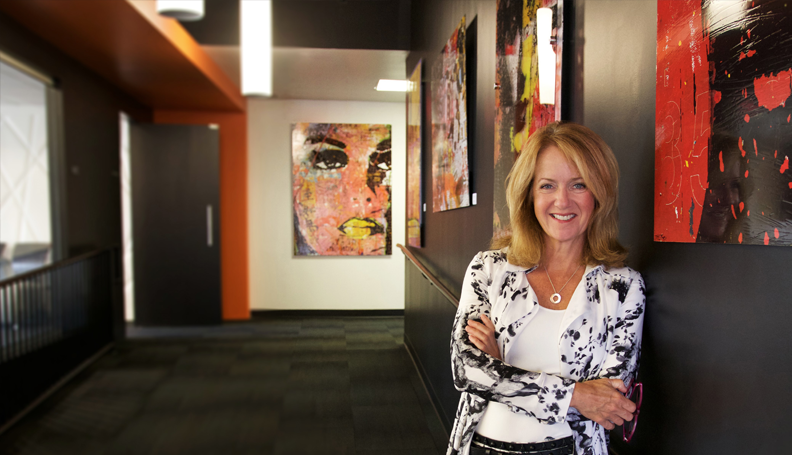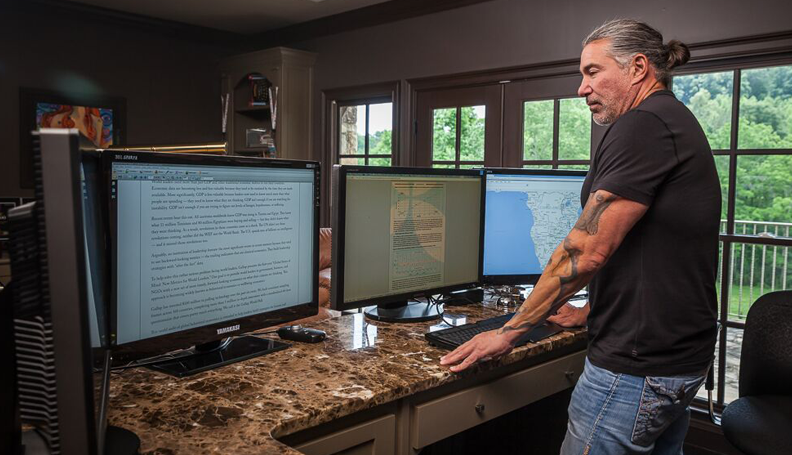Founders of fast-growing companies uniformly identified relationships and mentoring as key to their own successes. Gazelle founders discuss the role of personal networks in building a business.

Conceiving an idea for a business is one thing. Actually starting and operating a company is a different matter.
Entrepreneurs must find money, create a product or service, and then convince people to buy it. There are make-or-break hiring decisions. A bad call can derail a small firm with limited funding. Once there's money coming in, balancing unpredictable revenues with expenses is tricky.
Editor's note: This article is the fourth in a series of five articles that explores the findings of the Atlanta Fed's Gazelle Project.
About the Gazelle Project
The Gazelle Project collected qualitative data in a series of face-to-face interviews with southeastern entrepreneurs who started their businesses within the past 13 years. The project was spearheaded by the Atlanta Fed's John Robertson and Ellyn Terry. This series of articles will summarize the results of the project. Articles will examine a decline in business formations to set the context; firm founders' motivations and experience; the role of social capital, including social and professional relationships, in building gazelles; and the financing of gazelles.
The Atlanta Fed's Regional Economic Information Network (REIN) staff interviewed dozens of entrepreneurs across the Southeast to gather information about three broad areas:
- Human capital: The skills, knowledge, and experience of the individuals involved in launching and building the businesses.
- Social capital: The network of social and professional relationships that the founders use to identify and access resources.
- Financial capital: The financing the founders used to begin operations and to fund growth.
The Atlanta Fed's interest in small business focuses on three related issues: the role of small business in job creation; the role of small business in local economic development, and the role of the banking system in small business financing.
On top of these routine challenges, most company founders in the Atlanta Fed Gazelle Project reported facing unexpected shocks including lawsuits, illnesses, a rough economy, and squabbles with partners and employees.
A common bit of advice from these successful entrepreneurs: develop social networks and find and rely on mentors. Take advantage of trade associations and other networks that can help fledgling companies and their founders. Several gazelle founders said they joined trade groups in the industries they looked to serve—in other words, they got involved with groups of potential clients.
Much research on entrepreneurship emphasizes the importance of "ecosystems" in which there are tightly connected resources for entrepreneurs, including business incubators and accelerators, mentors, investors, and fellow entrepreneurs. For example, a March 2015 report by the Ewing Marion Kauffman Foundation describes the ingredients of a vibrant entrepreneurial ecosystem:
- Density of new and young firms. The number of startups per 1,000 people is a key indicator.
- Fluidity of the environment. The Kauffman researchers suggest that population flux—lots of people moving into and out of an area—"should lead to the 'collisions' that are key to idea generation." Also, people moving easily among different jobs is a sign of fluidity.
- Connectivity. A dense network of connections among programs matters. And dealmakers play a critical role in a vibrant entrepreneurial ecosystem. The Kauffman researchers stressed that the number of connections each dealmaker maintains is more important than the sheer volume of dealmakers.
Similarly focusing on the importance of close connections, a May 2014 Brookings Institution study explored the growing prominence of "innovation districts."
"In recent years, a rising number of innovative firms and talented workers are choosing to congregate and co-locate in compact, amenity-rich enclaves in the cores of central cities," wrote Bruce Katz and Julie Wagner of Brookings. They noted that in such places, founders are launching their firms in collaborative spaces with easy access to other entrepreneurs, equipment, and services.
Some researchers think connections are important very early in the life of a budding entrepreneur. The polling and consulting group Gallup found that 55 percent of eighth graders across the United States wanted to start and grow a business, but only 7 percent of those had access to a mentor or internship.
"We need to work very systematically...toward identifying those job makers and putting them into the programming that can enable them to accelerate their success," said Gallup's global channel leader for entrepreneurship and job creation, Todd Johnson, in a Federal Reserve podcast interview.
Connections often critically important
To be sure, not every founder in the Gazelle Project leaned on seasoned counselors. One founder said entrepreneurial organizations he could access were unhelpful, and groups he thought might be helpful were not interested in helping him.
But even some gazelle founders who didn't have mentors said they wish they had. And entrepreneurs who did not formally consult mentors or business organizations still tapped networks of friends, ex-coworkers, military buddies, and business associates to seek advice, talent, and customers. Many founders said they networked with former coworkers or clients from previous jobs to secure early customers, employees, or investors. One gazelle founder, for instance, said three of his firm's initial key customers were clients he served when he was consulting on his own.
Meanwhile, several founders reported that accountants and attorneys were crucial mentors and helped secure funding, quality employees, and even in one case a business partner.
David Miller and his brother, Mike, built Brightway Insurance in Jacksonville, Florida, from a single, traditional agency into a franchise operation with offices in 11 states. When the Millers several years ago sought to expand via a franchise approach, they turned for advice not to insurance industry groups, but rather to the likes of McDonald's and Firehouse Subs.
The brothers became deeply involved in the International Franchise Association, said David Miller, Brightway's chairman. "We've really worked hard to engage amongst other national franchise brands," he said. "We've benefited tremendously from those interactions."

Hannah Paramore (photo courtesy of Paramore/the digital agency)
Hannah Paramore necessarily took a different tack. In starting and running her digital marketing and design firm in Nashville, she called on people she met when she was an independent consultant. A self-described "voracious networker," Paramore said as a freelancer she learned compassion and the value of listening from clients. She remains active in the Nashville Area Chamber of Commerce, and said relationships formed there have also helped her.
Today, Paramore said she takes meetings with nearly anyone who seeks her counsel, especially younger people. "There were many other people who took time with me to encourage me early on," she said. "We have lots of clients I feel the same way about. I believe very much in sowing—you reap what you sow."
People who run small businesses are not unique. Like most of us, they tend to be comfortable with people they know. And relationships can lead to important milestones for young companies.

Mark Molinari (photo by Kendrick Disch)
Take 4th Source co-founder Mark Molinari. He and partner Rick McKay recently relinquished day-to-day management duties and hired a chief executive officer to run their technology services firm.
They didn't look far. Their new CEO, Michael Wedge, supervised Molinari and McKay earlier in their careers. Wedge had exactly the background they sought, Molinari said, and the 4th Source founders knew, liked, and respected him.
As he was building his construction services startup, Alex Hernandez said he didn't really know what sort of mentor he needed. He learned about management and contracts from larger companies he partnered with on reconstruction projects in post-Katrina New Orleans.

Scott Green (photo by Hal Yeager)
Like Hernandez, Scott Green had little involvement with formal business organizations. However, his company, Creative Concepts Inc., a wholesaler of powdered candy, has worked with the Alabama Small Business Development Center Network and the Alabama International Trade Center. Those groups have helped Green stay current about matters such as food safety regulations in other countries, as Creative Concepts has expanded its export business.
Most research on entrepreneurship emphasizes the value of networks and mentoring. Especially for inexperienced company founders, access to fellow entrepreneurs and advisers is generally considered invaluable. Even though some founders in the Gazelle Project did not much rely on traditional networks or mentors, they relied on people they knew for advice, support, and help securing customers, employees, or money.
No one goes it alone.
Next in this series: Small businesses play an outsize role in the U.S. economy, and because gazelles hire people as they grow rapidly, they are especially important. The fifth and final installment in the Gazelle Project series will explore hiring trends at these fast-growing firms.





